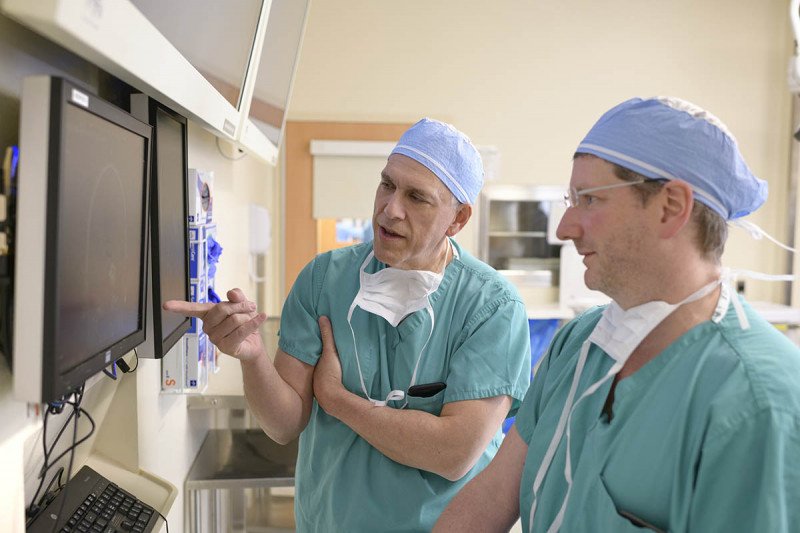
Depending on your acoustic neuroma (vestibular schwannoma) symptoms, size and location, and other important factors, Memorial Sloan Kettering experts may recommend surgery.
The aim of surgery is to remove as much of the tumor as possible while preserving important nerves, especially the nerve controlling movement in the face. In some cases, if we are concerned that surgery may damage these nerves, we may not be able to remove the entire tumor.
Improvements in imaging technologies and skull-base surgical techniques have made surgery for acoustic neuromas safer and more effective than ever before.
Approaches to Acoustic Neuroma Surgery
Surgical approaches for removal of an acoustic tumor include:
- Retrosigmoid approach (also known as the retromastoid approach or the suboccipital approach). This involves an incision behind the ear and removal of bone to expose the tumor. It can be used for any size tumor and, in patients with small tumors, can sometimes preserve hearing.
- Translabyrinthine approach. This involves an incision behind the ear and removal of bone, including a portion of the inner ear structures. This technique gives the surgeon excellent access to the tumor. It leads to total deafness, but many patients with acoustic neuromas have already lost their hearing.
- Middle fossa approach (also known as the subtemporal approach). This technique is intended for small tumors in patients with good hearing. It is achieved through an incision above the ear and bone removal to access the tumor.
Your team of surgeons at MSK will recommend which approach is best for your particular tumor.
Throughout an operation to remove an acoustic neuroma, surgeons use sophisticated monitoring techniques to minimize the risk to the nerves in the region and to the brain.
Surgery for acoustic neuromas involves collaboration between neurosurgeons and neurotologists (skull-base surgeons who specialize in the inner ear, the bones of the side and back of the skull, and the lower cranial nerves and brain stem).
Monday through Friday, to , (Eastern time)



